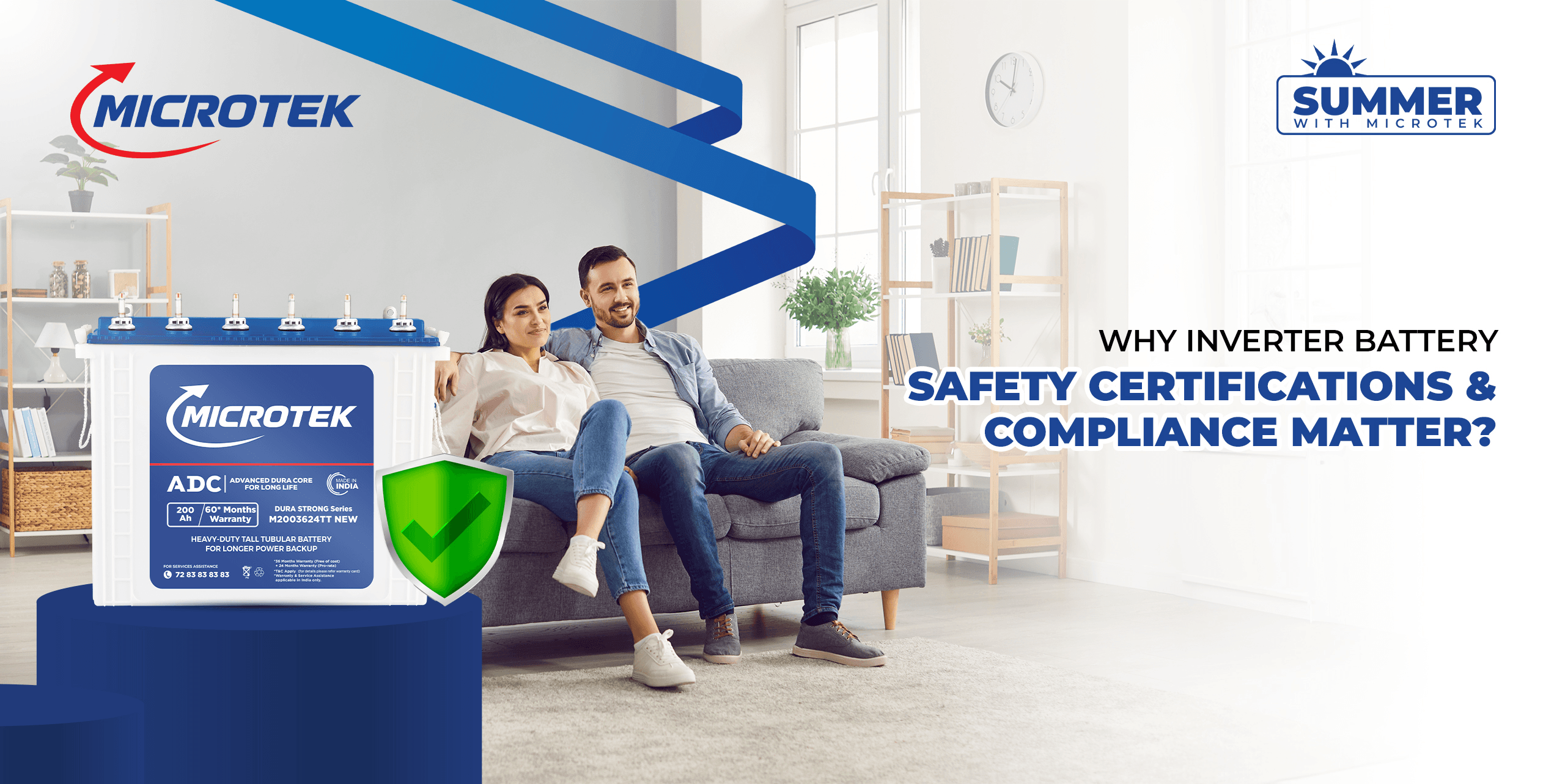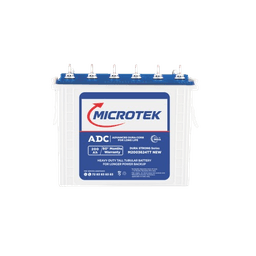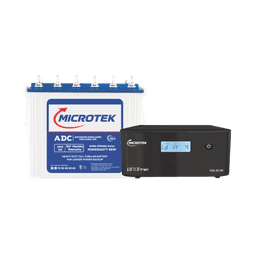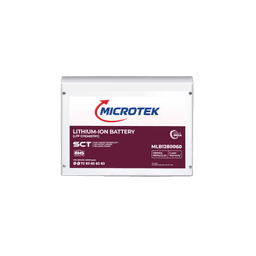
Why Inverter Battery Safety Certifications and Compliance Matter?
Inverter batteries aid in supplying energy when there is a power cut. They are utilised in homes, offices, and enterprises. These batteries hold power and are discharged when required. But they can be perilous if not assembled or employed accurately.
That is why safety certifications and compliance are important. They ensure the inverter battery is safe, reliable, and high-quality. Certified batteries follow safety rules and do not harm users or the environment.
Let’s understand why safety certifications and compliance matter.
What Are Safety Certifications?
Safety certificates are authorised clearances for creations that satisfy protection benchmarks. Trusted associations give consent. The product is tested under strict conditions before getting certified.
A certified battery means:
- It is safe to use.
- It meets quality standards.
- It does not cause harm to people or the environment.
Why Are Safety Certifications Important?
1. Prevents Accidents
Batteries hold electrical power. If they are not designed adequately, they can overheat, burst, or catch fire. Certified batteries are tested to prevent such risks.
2. Ensures High Quality
Certified batteries are made with good materials. They last longer and perform better. Poor-quality batteries wear out quickly and need frequent replacement.
3. Protects Users
Some batteries release harmful gases or chemicals. Certified batteries follow safety rules to protect users. They do not leak toxic substances or cause electric shocks.
4. Follows Government Rules
Many countries have strict laws for inverter battery safety. Batteries must meet these legal requirements before being sold. Certified batteries follow all necessary rules.
5. Lowers Environmental Hurt
Batteries possess various chemicals. If it's removed incorrectly, these chemicals can hurt the environment. Certified batteries observe eco-friendly norms.
What Is Compliance?
Adherence indicates following the security regulations and statutes specified by management. Firms constructing or marketing batteries must guarantee that their creations satisfy these protection laws.
Why Is Compliance Important?
1. Avoids Legal Problems
Non-deferent batteries can be barred from sale. Organisations may encounter heavy penalties or legal action.
2. Protects Users
Following safety rules ensures the battery is safe to use. It prevents fires, explosions, and health risks.
3. Builds Trust
Certified and compliant batteries give customers confidence. People trust brands that follow safety standards.
4. Promotes Sustainability
Many safety rules include recycling and proper disposal. This lowers battery junk and safeguards the surroundings.
What Transpires If a Battery Is Not Approved?
Utilising non-certified batteries can induce severe issues. Some risks include:
1. Danger of Blaze and Bursts
Poor-grade batteries may overheat and catch fire. This can cause property harm and wounds.
2. Electric Shocks
Faulty batteries may have wiring issues. They can give electric shocks to users.
3. Release of Toxic Gases
Some batteries release harmful gases that cause breathing problems. This can be dangerous in small spaces.
4. Shorter Battery Life
Non-certified batteries do not last long. They may stop working quickly, leading to frequent replacements.
5. Damage to Appliances
Bad batteries can hurt inverters and other electrical apparatuses. They may generate energy fluxes or harm susceptible electronics.
How to Inspect for Safety Certifications?
Before purchasing the battery of an inverter, observe these steps:
1. Look for Certification Marks
Check the product label for marks like UL, CE, BIS, or RoHS. These marks confirm that the battery meets safety standards.
2. Read the User Manual
The manual should mention compliance with safety standards. If there is no information, be cautious.
3. Visit the Brand’s Website
Trusted brands provide certification details on their websites. If you don’t find any information, avoid the product.
4. Ask the Seller
Before buying, ask the seller if the battery meets safety rules. If they cannot provide details, do not purchase.
5. Avoid Cheap and Unknown Brands
Low-cost batteries may lack certifications. They may not be secure or stable.
How to Guarantee Secure Use of Inverter Batteries?
Even certified batteries need proper handling. Follow these safety tips:
1. Store Batteries Properly
Keep inverter batteries in an undisturbed, arid area. Bypass natural rays and dampness.
2. Avoid Overcharging
Overcharging causes batteries to overheat. This can harm the battery and lower its life.
3. Use the Right Charger
Always use a recommended charger. A wrong charger can overload the battery and cause failures.
4. Check for Leaks
If you witness liquid dripping from the battery, quit using it. Leaks can be harmful and unsafe.
5. Dispose of Old Batteries Securely
Don’t just simply toss batteries in the rubbish. Observe provincial recycling regulations for secure disposal.
- Copy :

























